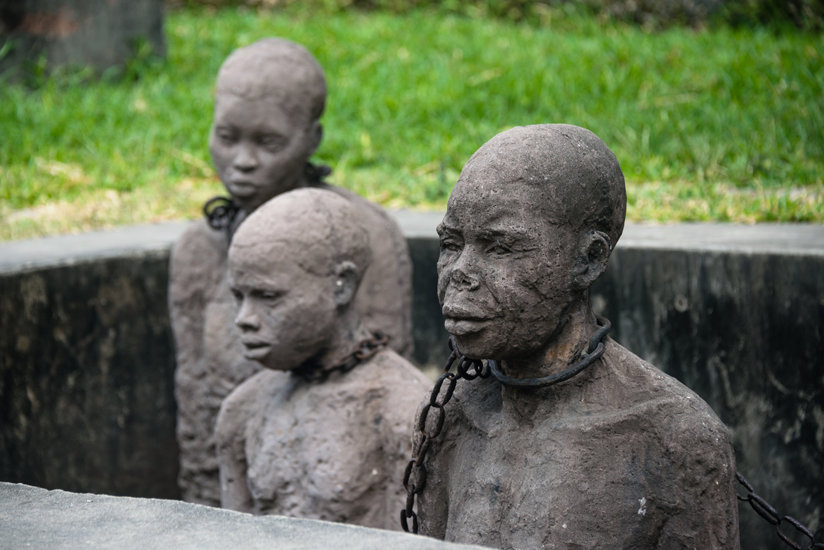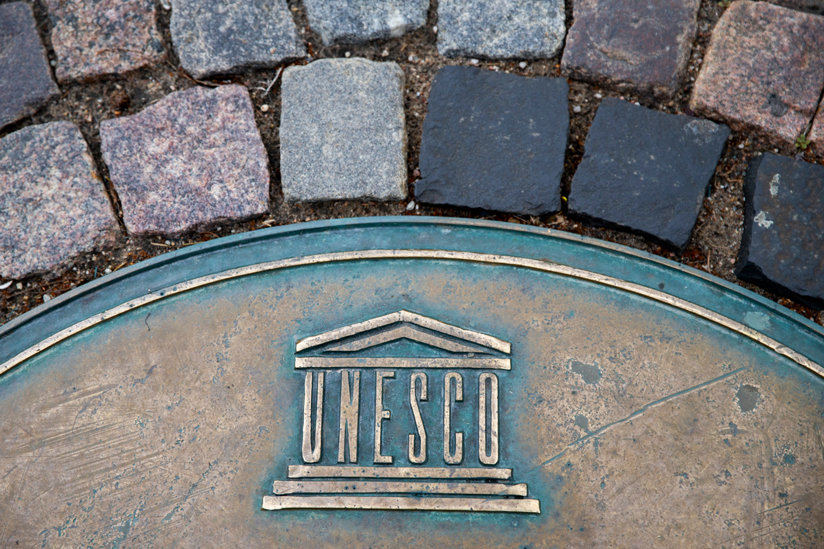
-
HOME
-
WHAT IS STANDOur Mission Our Values Our Help Contact
-
WHAT WE FIGHT FORReligious Freedom Religious Literacy Equality & Human Rights Inclusion & Respect Free Speech Responsible Journalism Corporate Accountability
-
RESOURCESExpert Studies Landmark Decisions White Papers FAQs David Miscavige Religious Freedom Resource Center Freedom of Religion & Human Rights Topic Index Priest-Penitent Privilege Islamophobia
-
HATE MONITORBiased Media Propagandists Hatemongers False Experts Hate Monitor Blog
-
NEWSROOMNews Media Watch Videos Blog
-
TAKE ACTIONCombat Hate & Discrimination Champion Freedom of Religion Demand Accountability
UNESCO Commemorates Beginning of the End of the Slave Trade
When a free man dies, he loses the pleasure of life. A slave loses his pain. Death is the only freedom a slave knows. That’s why he’s not afraid of it. That’s why we’ll win.
– Spartacus, 73 B.C.E.
130 years ago this month, a slave rebellion of unparalleled persistence began which resulted in the creation of the only nation ever founded and governed by former slaves and captives. That new nation, Haiti, was spawned in the blood of slaves, brought on by the cruelty and torture of their masters and by the unrelenting defiance of the subjugated population of the French colony of Saint-Domingue after over a century and a half of callous oppression to the point of sadism.
As 50 percent or more of the slaves imported from Africa were to die of yellow fever within just a year of arrival, slaves were worked to the point of collapse with barely enough food and water to sustain life—the reasoning being that if they were to die within a year, one must get the maximum return out of one’s “investment.” At any rate, a fresh load would be on the way on the next ship.

In 1787 alone, the French kidnapped about 20,000 people from Africa to toil on sugar plantations. As slaves had no rights, anything could be done to them—rape, torture, burning alive. And the atrocities were done freely in the knowledge that in that remote colony, retribution from a higher authority such as the French government half a world away was nothing to be feared.
As slaves had no rights, anything could be done to them—rape, torture, burning alive.
But the captors had failed to reckon on a simple fact. By the late 1700s, the slaves of Saint-Domingue outnumbered their masters by a factor of 8 to 1. The disproportionate ratio of slaves to captors alarmed many. As French writer Count Mirabeau wrote at the time, the Saint-Domingue whites “slept at the foot of Vesuvius,” suggesting the bloody consequences they faced should their slaves rise up against them.
More than mere arithmetic, however, the slaves, in common with their forebear, Spartacus, who had led an unsuccessful slave rebellion against the Roman empire more than 1900 years earlier, had a thirst for freedom. And after 13 years of conflict which brought in the participation of the armies of France, Britain and Spain, the slaves of Saint-Domingue won not only their freedom, but also their independence from colonial occupation.

The United Nations Educational, Scientific and Cultural Organization (UNESCO) annually commemorates August 23, the date marking the beginning of the Haitian Revolution, as International Day for the Remembrance of the Slave Trade and its Abolition. The date marks a turning point in the grim history of man’s compulsion to chain and degrade his fellow man. The slave trade was shortly thereafter abolished in Great Britain, followed by France in 1848 and the U.S. 15 years later.
UNESCO has set aside August 23 “to inscribe the tragedy of the slave trade in the memory of all peoples.”
As Ms. Audrey Azoulay, Director-General of UNESCO, wrote, “The fight against trafficking and slavery is universal and ongoing. It is the reason for which UNESCO led the efforts to launch the International Day for the Remembrance of the Slave Trade and its Abolition. This special day acknowledges the pivotal struggle of those who, subjected to the denial of their very humanity, fought against the slave system. The slave trade is the product of a racist worldview... Every day throughout the world, men and women of African descent continue to endure the effects of this grim legacy, sometimes paying with their lives. On this commemorative day, UNESCO reaffirms its support for Member States so that together we can devise new measures to put an end to racist discrimination. Once and for all, it is time to abolish human exploitation and to recognize the equal and unconditional dignity of each and every individual on Earth.”









